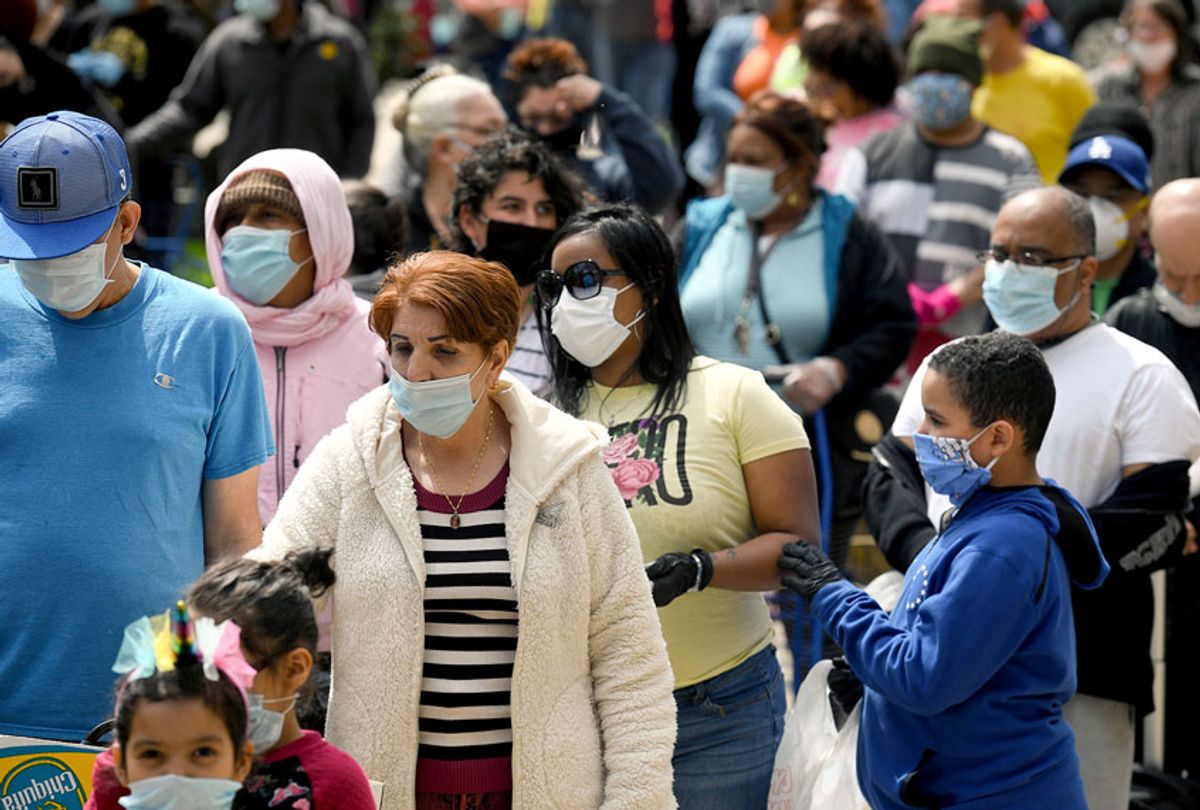A new study reveals that roughly 60 million Americans were saved from novel coronavirus infections as a result of the shutdown orders implemented throughout the United States during the pandemic. That means about 18% of the country's population avoided a coronavirus infection as a result, likely reducing the death toll by six or seven figures.
The report, which was published in the journal Nature, modeled infection and disease spread using well-established public health models. Researchers determined that, without public health–informed shutdown measures, early infection rates increased by 43 percent per day on average both in the United States and in five other countries including China, France, Iran, Italy and South Korea. (The authors noted that the average fell to 38 percent when Iran, which had an unusually high growth rate, was omitted from the equation.)
The authors analyzed the data from these countries both prior to and during the periods when strict containment policies were imposed.
"We find that the deployment of anti-contagion policies in all six countries significantly and substantially slowed the pandemic," they concluded.
The authors then estimated that, had these measures not been taken, there would have been 60 million more infections and 4.8 million more confirmed cases in the United States.
They also estimated that, without shutdown measures, there would have been 285 million more infections and 37 million more confirmed cases in China; 38 million more infections and 11.5 million more confirmed cases in South Korea; and 49 million more infections and 2.1 million more confirmed cases in Italy.
"Some policies have different impacts on different populations, but we obtain consistent evidence that the policy packages now deployed are achieving large, beneficial, and measurable health outcomes," the authors wrote. "We estimate that across these six countries, interventions prevented or delayed on the order of 62 million confirmed cases, corresponding to averting roughly 530 million total infections."
They added that they hoped their findings would assist governments in determining "whether or when these policies should be deployed, intensified, or lifted, and they can support decision-making in the other 180+ countries where COVID-19 has been reported."
Public health measures in the United States have become a political lightning rod, with many conservatives conflating economic restrictions aimed at protecting life with their own twisted notion of liberty. Many anti-lockdown protests have centered on celebrating Sweden for its laissez-faire approach to the pandemic; said protesters employed about the slogan "be more like Sweden" to tout their belief that the country had supposedly not suffered as a result of their lax attitude. Public health data debunks this: Sweden's per capita death toll from COVID-19 is among the highest in the world, with roughly 43.88 deaths out of every 100,000 people. By contrast Norway has a COVID-19 death rate of 4.46 out of every 100,000 people and Denmark's rate is roughly 10.00 out of every 100,000 people. The United States has a death rate of 32.45 out of every 100,000 people.



Shares